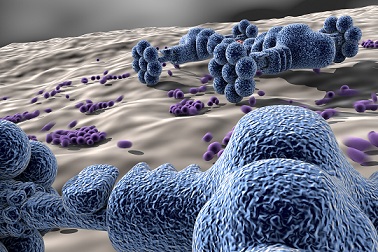Finding a better way to help treat disease

Related topics
Health Innovation Health, Demographic Change and Wellbeing Nanotechnologies Belgium Denmark Finland France Germany Italy Netherlands Poland Spain United Kingdom Switzerland Israeldate: 14/04/2014
Project: Targeted delivery of nanomedicine
acronym: MEDITRANS
See also: CORDIS
Contact: Contact
To bypass these negative reactions, the European Union (EU)-funded research project Meditrans has developed smart drug delivery systems to help treat diseases such as cancer and rheumatoid arthritis more accurately.
The project team relied on nanomedicine – a process that uses carrier materials like tiny tubes and nanoparticles – to deliver exact quantities of drug to specific body organs and cells. “This means that the amount of required drug and side-effects could be significantly reduced by depositing the medication in the affected area only and in no higher dose than necessary,” says Meditrans coordinator, Dr. Gert Storm at Utrecht University in the Netherlands.
A key result of the Meditrans project was the imaging method developed by the team to monitor the various steps in the targeted drug delivery process. These so-called 'MRI imaging probes' reported on the location of nanomedicines in the body, the drug release process and the end result for the patient. Furthermore, the project team assessed the toxicity of selected nanomedicines – a crucial step for their further development.
“Overall, our approach is more effective and less toxic. It could also significantly reduce drug consumption and treatment expenses, easing the burden on healthcare systems across Europe and beyond,” explains Storm.
The Meditrans project has already shown its potential in tests and the team has identified four nanomedicines that will be further explored. If all goes well, each of the four nanomedicines will be commercialised by an industrial partner and eventually be available on the market.
The research team also held training courses at regular intervals during the project. The courses were targeted at scientists, SMEs and key stakeholders across the globe. Moreover, all project partners had access to the Galenos Network in Pharmaceutical Sciences. Founded in 1995, this network was set up to promote and foster the training of young researchers in the scientific area of Advanced Drug Delivery.
Meditrans project has created a strong link between the community of pharmaceutical scientists and imaging probe developers. It is expected that this link will boost the emerging field of imaging-guided drug delivery in Europe. To ensure that its legacy lives on, the project's results have been disseminated across Europe in the media, scientific articles and through events.
